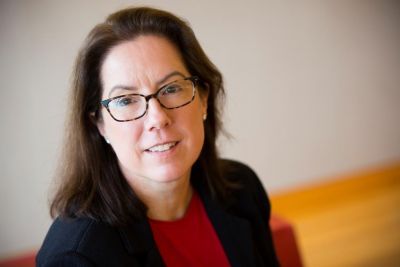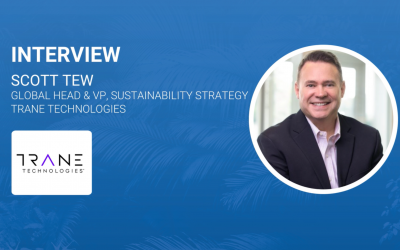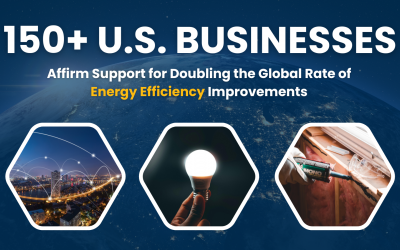The fossil fuel “engagement vs divestment” debate at Harvard’s endowment fund
Climate Action spoke to Kate Murtagh, Chief Compliance Officer and Managing Director, Sustainable Investment at the Harvard Management Company about Harvard’s sustainable investment and engagement strategies.

Mustafa Chaudhry, Senior Producer at Climate Action recently caught up with Kate Murtagh, Chief Compliance Officer and Managing Director for Sustainable Investment at Harvard Management Company. The university has the largest academic endowment in the world, totalling $37.1bn.
Mustafa Chaudhry: Harvard was the first university in the US to sign the UN supported Principles for Responsible Investment. How has Harvard's journey in sustainable investment evolved?
Kate Murtagh: Harvard’s commitment to sustainable investing dates back to the early 1970s—although it wasn’t called that at the time. The University formed two committees to focus on matters of shareholder responsibility—in particular, exercising the University’s right to vote proxies. Becoming a signatory to the PRI, as well as the CDP’s climate action program, were natural extensions of that commitment to engaged investment.
Over the past decade, sustainable investment has become a broader part of the mainstream investment debate. In the past, investors feared that they would trade off returns if they incorporated environmental, social, and governance factors in their investment decision-making process. Increasingly, investors are discovering that considering ESG factors not only mitigates risk, but also drives value. The more institutional investors have become interested in sustainable investing, the more willing asset managers are to engage in this dialogue and develop their own programs.
MC: How, as an academic institution, do issues of sustainability affect your investment practices when compared to other investors?
KM: For universities, an endowment is a perpetual asset intended to benefit both current and future generations. As a fiduciary for Harvard University, it is HMC’s responsibility to ensure that the endowment is managed for the long term.
At HMC, we believe that considering environmental, social, and governance risk factors and opportunity sets in our investment process is directly aligned with our mission to provide strong long-term returns to Harvard University. That necessitates including ESG factors in our analysis and decision making, both before and throughout the term of an investment. ESG factors can be found in a variety of areas such as energy consumption, resource scarcity, diversity and inclusion, and effective board oversight—all of which could impact the long term performance of an individual investment.
MC: What are the biggest challenges to ESG integration across different asset classes?
KM: The challenges of sustainable investing very much depend upon the type and form of each investment. There is no “one size fits all” approach and we tailor our efforts based on many factors such as asset class, geography, and investment vehicle. At the most basic level, when we engage with external managers, we look for a familiarity with material ESG factors that could impact their portfolios, coupled with a willingness to engage in a dialogue on sustainability and a desire to seek continuous improvement in this area. When dealing with alternative assets, such as natural resources, there can be more direct accountability and we’re able to provide clear direction to local managers with regards to ESG identification and integration.
MC: How are corporate governance and engagement strategies at HMC changing in response to the move towards a low-carbon economy?
KM: Much of our engagement work over the past few years has focused on the transition to a low-carbon economy. For example, we served as a co-lead investor in the PRI’s collaboration on corporate climate lobbying which focused on corporations that publicly support climate risk legislation while privately lobbying against such measures. And we are currently participating in the PRI’s collaboration on methane risk which seeks to encourage energy and utility companies to improve their management of methane emissions and to strengthen disclosure of their process.
MC: You will be speaking at the Sustainable Investment Forum North America in New York later this year about the "engagement vs divestment" debate in the energy sector. Could you give us an insight into what you will be discussing?
KM: The “engagement vs divestment” debate has a long history at Harvard.
In the late 1970s, then President Derek Bok addressed the issue in a series of letters to the Harvard community. Reflecting on the ethical responsibilities of the university in society, President Bok cited three reasons why universities have traditionally been reluctant to take institutional positions on political issues. First, to do so may stifle intellectual freedom on campus. Second, exerting economic leverage may draw outside pressure on the university’s academic policies. And third, concerns about diverting university resources away from the academic purposes for which they were entrusted. These letters continue to influence the University’s thinking on these matters to this day.
In her 2013 letter to the Harvard community, President Drew Faust spoke specifically to climate change and fossil fuel divestment. While acknowledging that climate change represents one of the world’s most consequential challenges, President Faust noted that the university still maintains a strong presumption against divestment for reasons unrelated to the endowment’s financial strength and its capacity to further Harvard’s academic goals. As an academic institution, Harvard holds its endowment funds in trust to advance its programs of education and research, which constitute the university’s distinctive way of serving society.
Harvard favors engagement over divestment. At HMC, we have worked collaboratively with like-minded investors to bring attention to key ESG factors—such as corporate climate change lobbying or methane risk—and foster positive action at the corporate level. Through these collaborations, we engage in dialogues with key industry players to better understand their approach to certain ESG factors and encourage them to take additional steps—including more transparent disclosure—whenever prudent.
Kate Murtagh will be speaking on the “Tackling the energy sector: Investment, Divestment or Engagement?” panel at the Sustainable Investment Forum North America on the 26th of September in New York City. Click here to register.






